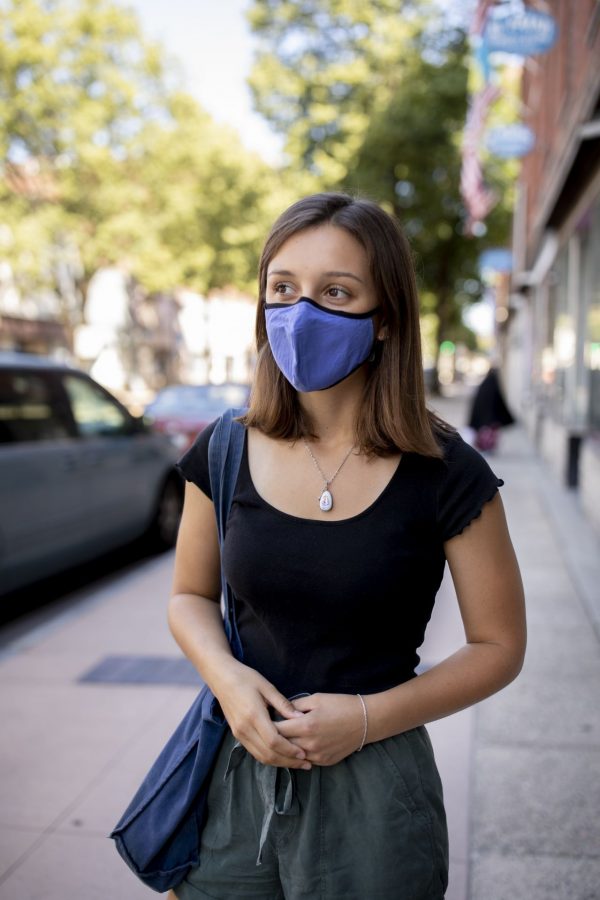“This Experience A Gift”

Hannah McKenzie ’21
Stevenson, MD
“I knew I wanted to spend my summer before my senior year living in Lewiston and growing the community partnerships I’ve developed as a Bonner Leader at Bates. But in a time when I could otherwise feel so isolated from the community due to social distancing restrictions, I have felt especially grateful to be able to engage personally with local communities with the support of the Harward Center. This time has been a challenge, this experience a gift.
I spent much of the summer learning about immigration law, processes of applying for asylum and citizenship, and the ways those processes have been altered and affected by the Trump administration in recent years (and even weeks). Under the guidance of my community partner, Alice Kopij of the Immigrant Legal Advocacy Project, I developed a pro se (self-help) guide for people applying for U.S. citizenship without a lawyer, a task that required that I deeply understand the citizenship process and then translate it into materials that are both legally precise and linguistically accessible. I researched topics in asylum law, assisted with forms, and conducted country conditions research to be used to build individual asylum cases. I was grateful to meet some of Alice’s legal clients, and most broadly, to gain insight into work that is dedicated to advocating for people in need in such a direct way.
In other work, I collaborated with partners at the Immigrant Resource Center of Maine (IRCM) to assist with culturally sensitive programs for immigrant survivors of domestic violence and sexual assault. I took on the role as a grant writer, which I appreciated because it is a tangible form of support for the organization and a role that felt more appropriate for me as a white American than if I were to assist with more direct services that are based in cultural understanding and relatability. I’ve spent a lot of time this summer thinking about what my role is—and what it can’t be—in work supporting the refugee community. This is not my community in the way it is for the staff with whom I work at IRCM. With IRCM especially, I’m learning to be an advocate responsive to community needs and direction. It’s a lesson I’ll take with me wherever I go in life.
We’re in a time of multiple crises, and I’ve been grateful to have engaged with a part of the Lewiston community’s response to them. It has also felt hugely important to my personal experience grappling with racial injustice, health disparity, and so many of the important contexts of this time. I’ve seen how refugee/immigrant staff from IRCM are working so tirelessly to support their community, from advocating for local government health support to coordinating rides for their neighbors to go to the doctor when they can’t drive themselves. It was inspiring to see, too, how these local organizations partner; often, I would be in a Zoom meeting and notice that my supervisors from both organizations were on the call. I’ve seen how Lewiston communities collaborate and help each other, and that’s given me hope.
This community-engaged work has filled many of the gaps in what I’ve understood about refugee and immigrant experiences in the local context in recent years, and my perspective feels immensely wider and deeper. I’m now excited and feel prepared to conduct a community-engaged honors thesis in anthropology this year, which will grow directly out of my continued role with IRCM. Throughout the year, I’ll communicate with Executive Director of IRCM, Fatuma Hussein, about how to produce the most valuable anthropological scholarship and also be most directly helpful to the organization. It is this kind of bridging—of my academics and community work, of personal interaction and broader lessons about the city and country, of Bates and Lewiston—that have made my college experience so meaningful. I can’t imagine having done anything else these past months, and I’m so grateful.”